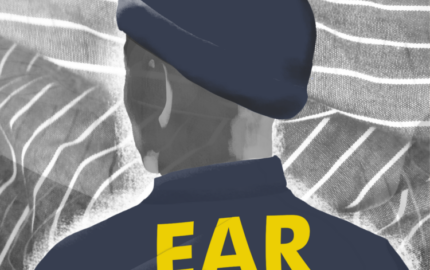This piece explores a judge's difficult position in a difficult case. Siegel traces parallel themes in the lives of the judge and defendant: responsibility, redemption, compassion. The piece won the 2002 Pulitzer Prize for feature writing.
A man leaves his 3-year-old son sleeping in his pickup and tracks deer for a mile into the Utah mountains. He returns and finds that his son has escaped the truck and wandered into the woods. The boy will die of exposure, and a judge will face his most difficult decision: What punishment, if any, does the distraught father deserve?
Siegel's approach to the story is innovative and fairly complex. He is primarily interested in the challenges the case posed to Judge Robert Hilder and, more generally, in the complexities of society's interest in "seeing justice served." Siegel structures the piece accordingly. Notice the sequential experience he creates for the reader: He begins with Hilder's point of view after the judge has sentenced the father, Paul Wayment, to minor jail time. Siegel transitions to an account of the boy's death and reveals the fact that makes this story particularly tragic: the father's devotion to his son.
Within the first thirty paragraphs or so, Siegel has introduced and begun to reveal his two central characters and compellingly recounted the "crime." The piece moves among explorations of the legal process, the judge's personal experiences that inform his work, Wayment's life and community reactions to the event. All is made compelling by the emotional content.
Read “A Father's Pain, a Judge's Duty, and a Justice Beyond Their Reach,” by Barry Siegel
A man leaves his 3-year-old son sleeping in his pickup and tracks deer for a mile into the Utah mountains. He returns and finds that his son has escaped the truck and wandered into the woods. The boy will die of exposure, and a judge will face his most difficult decision: What punishment, if any, does the distraught father deserve?
Siegel's approach to the story is innovative and fairly complex. He is primarily interested in the challenges the case posed to Judge Robert Hilder and, more generally, in the complexities of society's interest in "seeing justice served." Siegel structures the piece accordingly. Notice the sequential experience he creates for the reader: He begins with Hilder's point of view after the judge has sentenced the father, Paul Wayment, to minor jail time. Siegel transitions to an account of the boy's death and reveals the fact that makes this story particularly tragic: the father's devotion to his son.
Within the first thirty paragraphs or so, Siegel has introduced and begun to reveal his two central characters and compellingly recounted the "crime." The piece moves among explorations of the legal process, the judge's personal experiences that inform his work, Wayment's life and community reactions to the event. All is made compelling by the emotional content.
Read “A Father's Pain, a Judge's Duty, and a Justice Beyond Their Reach,” by Barry Siegel


